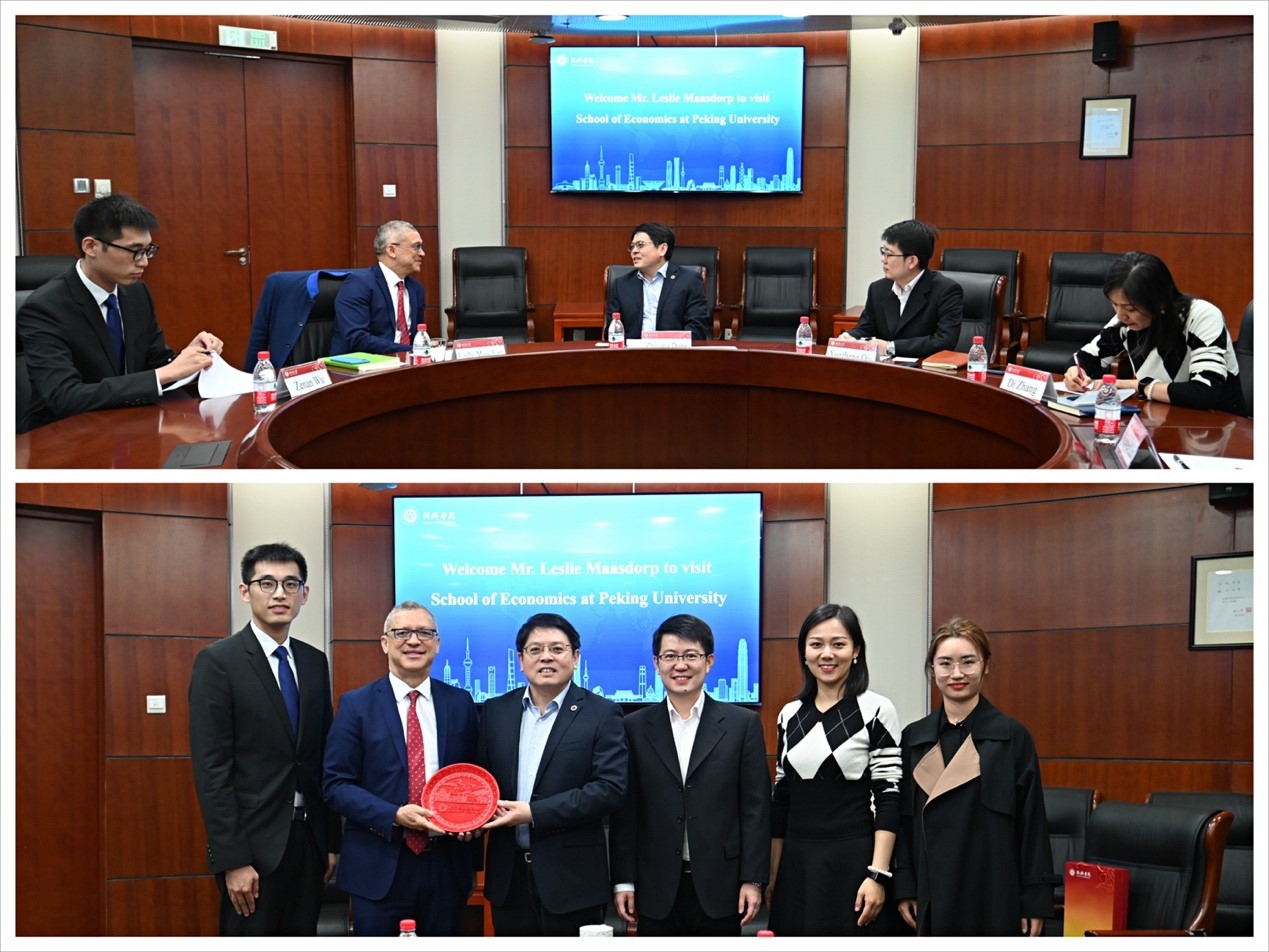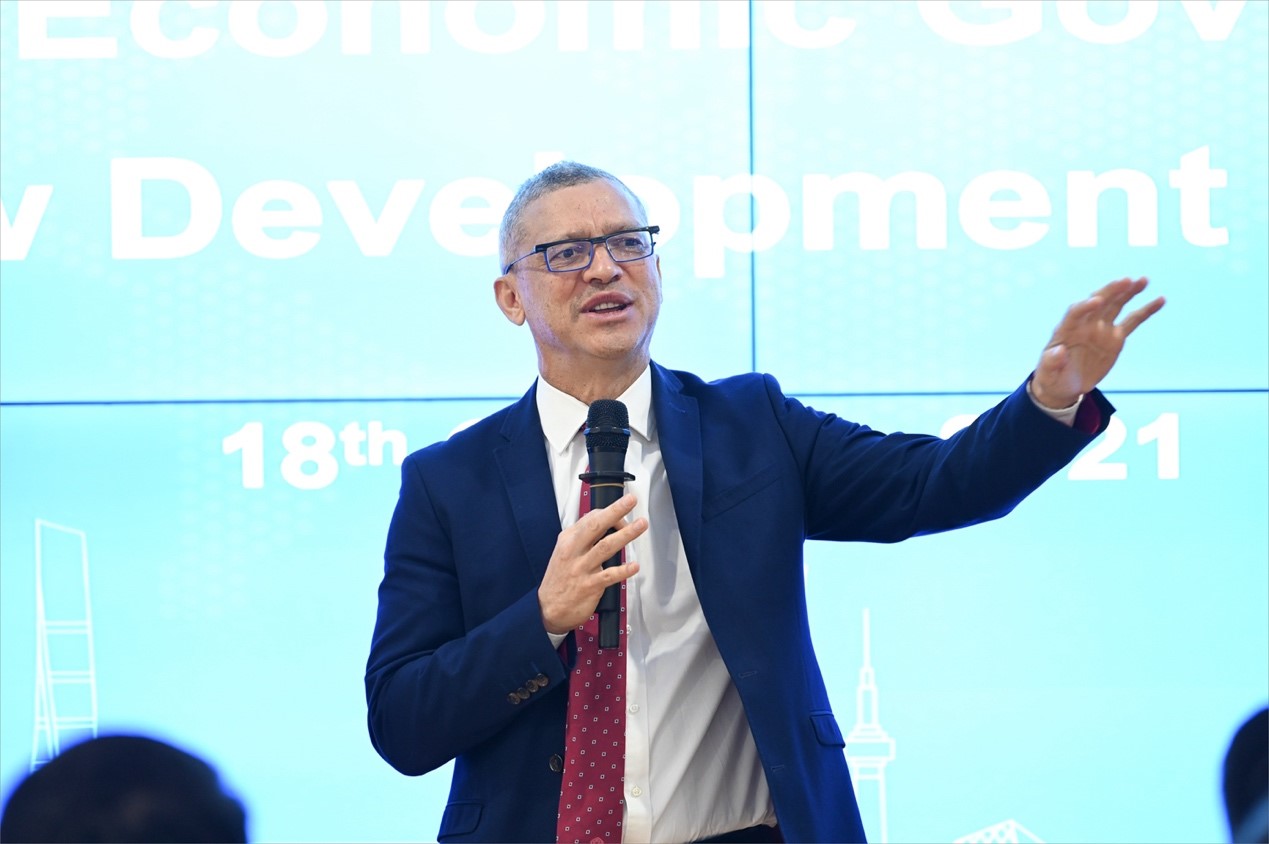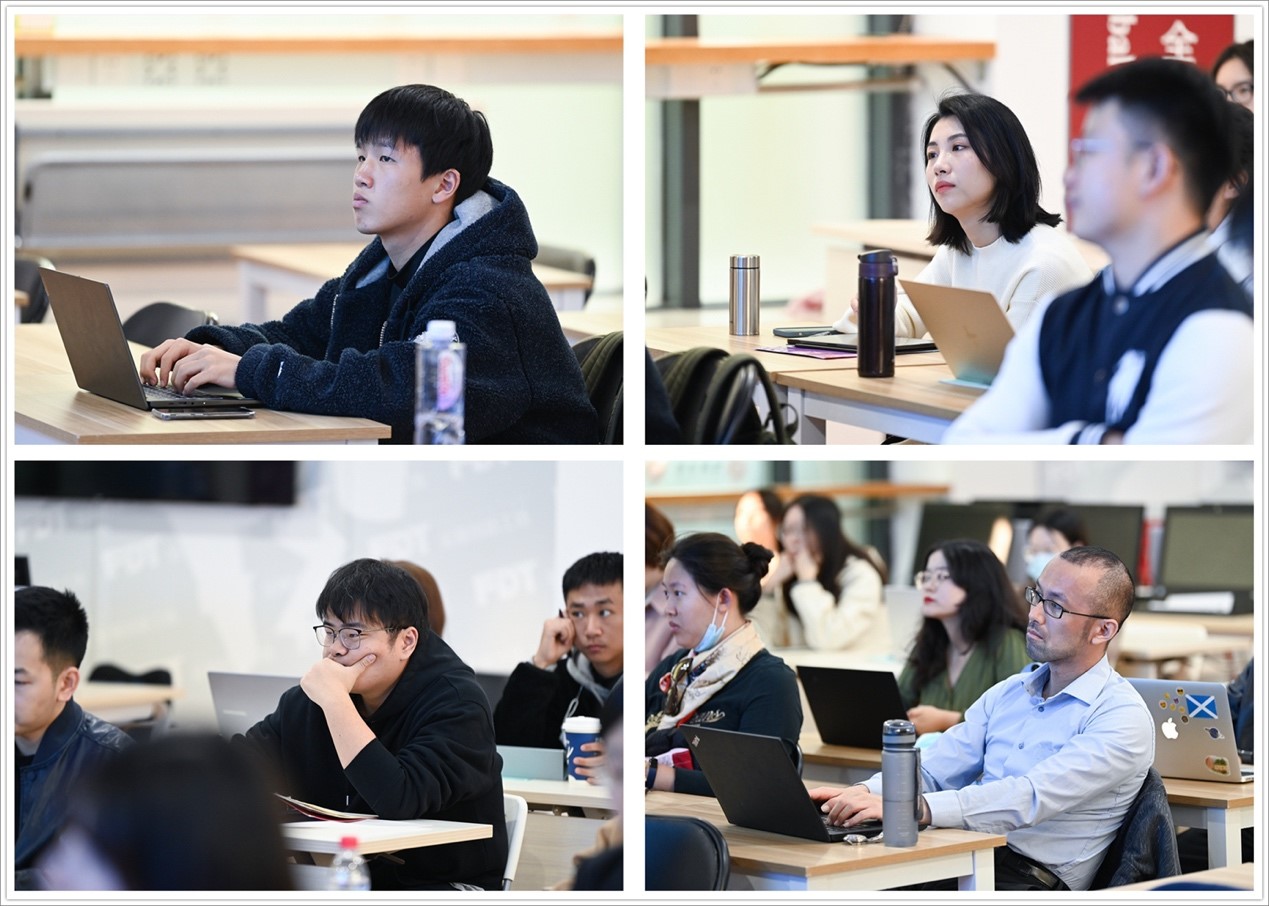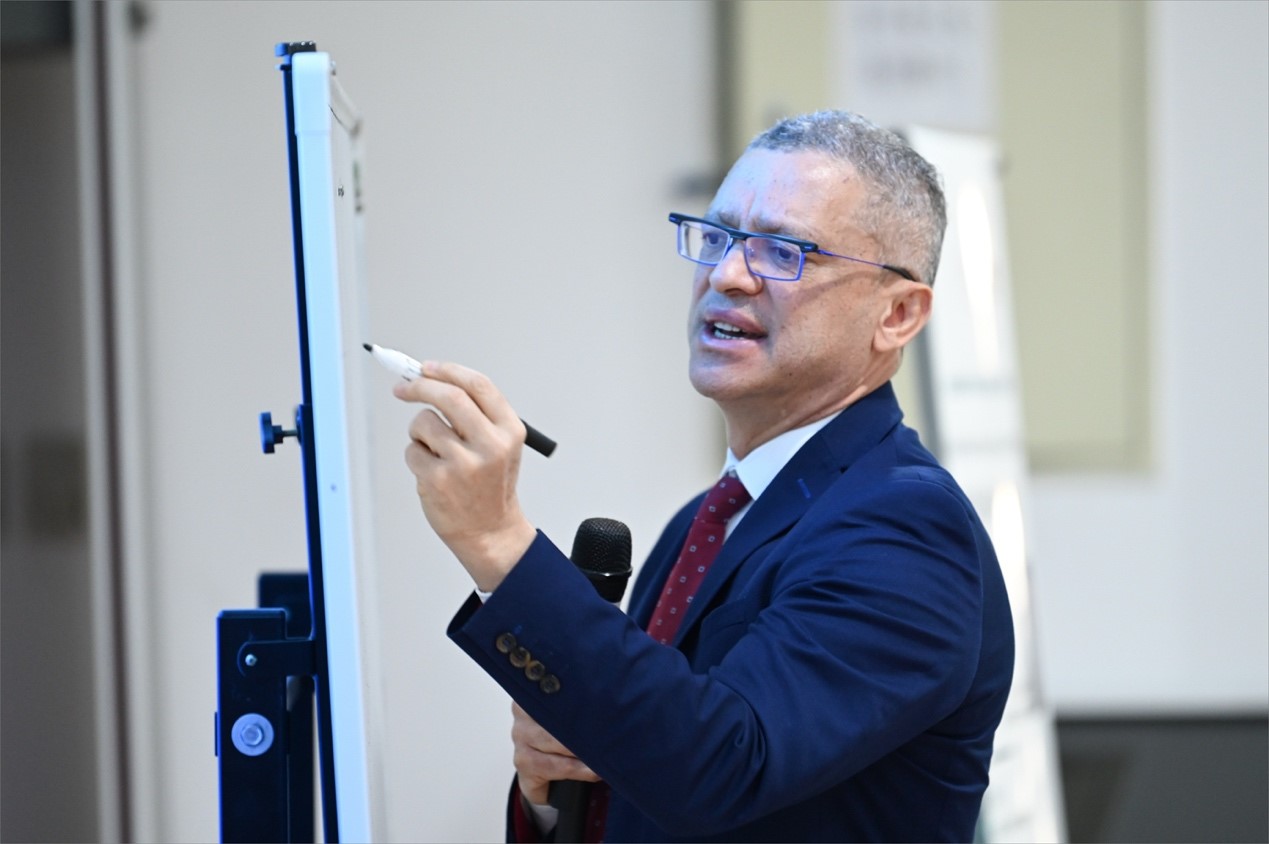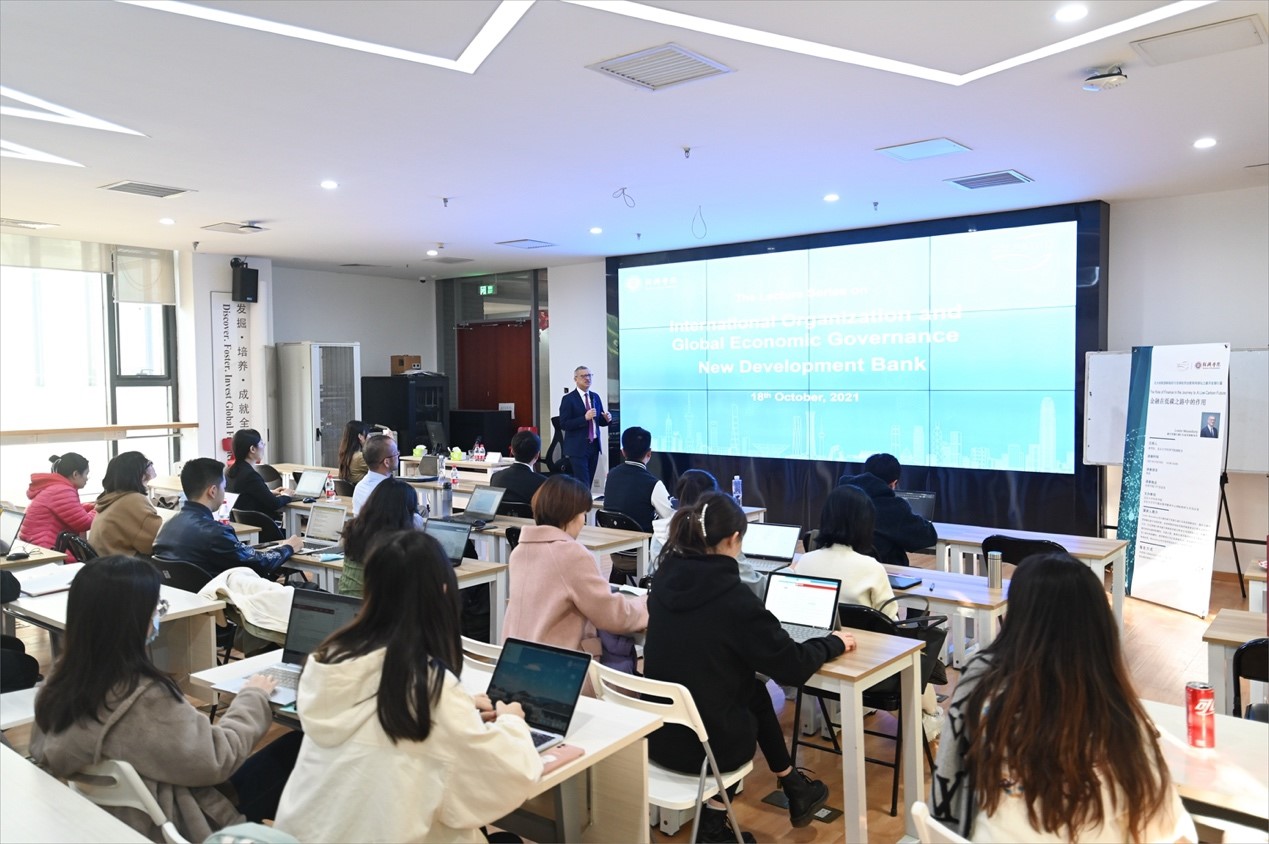Peking University, October 28, 2021:
On October 18, 2021, the 4th lecture of SEPKU lecture series on
“International Organizations and Global Economic Governance” was held.
This event was co-hosted by School of Economics at Peking University
(PKU) and PKU Student Career Center. Leslie Maasdorp, vice president and
Chief Financial Officer of New Development Bank, gave his speech titled
“The Role of Finance in the Journey to A Low Carbon Future”.
Before the lecture, Professor Dong Zhiyong, dean of School of Economics
and others held an exchange with Leslie Maasdorp. In response to the
welcome, Leslie Maasdorp said that Peking University plays an important
role in the study of development finance, and he is looking forward to
deepening cooperation in this field and discussing future trends.
At the lecture
In
his speech, Leslie first introduced the history of development
financial institutions (DFIs) and analyzed the important role they play
today in confronting the challenges humanity faces. He pointed out that
the global economy is experiencing a long-term, acute transition crisis.
As such, the efforts of multilateral organizations and visionary
institutions are required to combat public issues such as the pandemic,
climate change and immigration amid trying times.
Leslie Massdorp giving his speech
Leslie
Maasdorp highlighted the carbon border tax as a focal point in future
international relations. Speaking of carbon pricing, he pointed out that
the question of who is to bear the price of carbon emission remains
pending. As carbon emission concerns both production and consumption,
setting up a new green trade system is essential for the resolving
problems regarding carbon pricing. This system should treat developing
and developed countries equally, and strike a balance between taxing
producers and consumers.
The audience at the lecture
Leslie Maasdorp stated that with the establishment of the New
Development Bank (NDB), China will play a bigger role in global
development finance. Emerging markets could improve their standing in
global finance under the auspices of the New Development Bank and the
Asian Infrastructure Investment Bank (AIIB). Leslie believes that there
will be great changes to the field of development finance, with more
large-scale international organizations centered around emerging
markets.
Leslie Massdorp giving his speech
Lastly,
Leslie Maasdorp proposed some suggestions for institutional reform to
aid the efficient functioning of development financial institutions. He
advised developing countries to invigorate local currency markets and to
deepen the opening of bond markets. In addition, he advocated for a set
of uniform standards established by multilateral banks. Leslie pointed
out that the transition to a low-carbon society requires more innovative
ideas and a revamp of commercial patterns, and urged young scholars to
contribute to this regard.
At the site of the lecture
As an essential avenue for global economic governance, international
organizations play a major role in facilitating global communication,
cooperation, and the development of global economy. To explore better
ways of supporting and participating in the development of international
organizations, School of Economics at Peking University has held a
lecture series on “International Organizations and Global Economic
Governance”, in which experts at the World Bank, the International
Monetary Fund, the World Trade Organization and other important
international organizations are invited to discuss with PKU students and
teachers about global economic development and reform.
Introduction to the Lecturer:
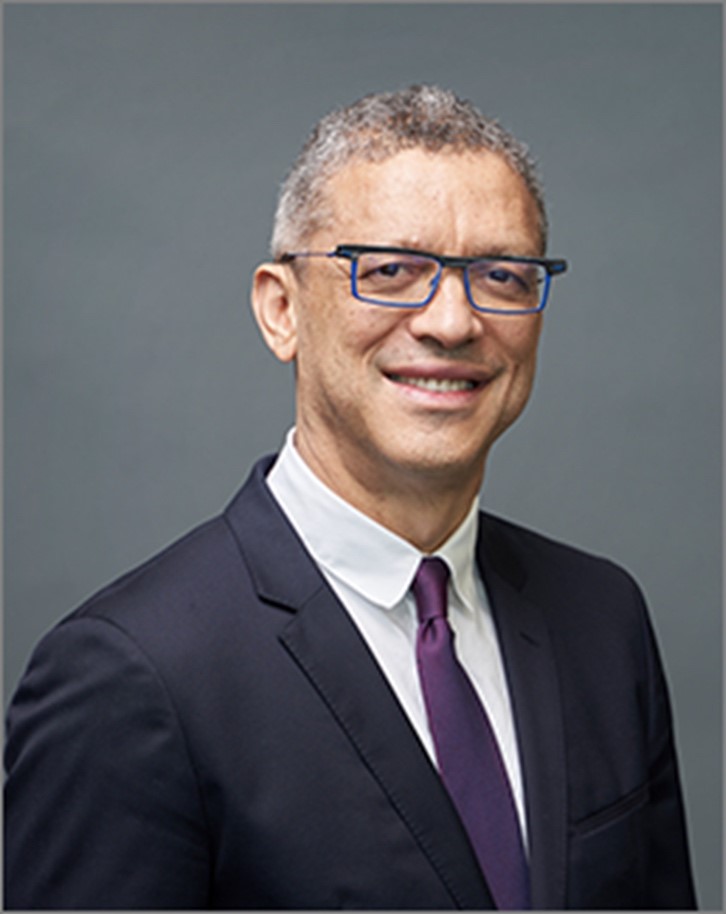
Leslie Maasdorp is Vice President and Chief Financial Officer of the New
Development Bank. He once served as a Managing Director and President
of Bank of America Merrill Lynch for Southern Africa, vice chairman of
Barclays Capital and Absa Capital, and he was the first African to be
appointed as International Advisor to Goldman Sachs International.
Written by: Zhao Yuexu
Edited by: Li Wanqi
Source: PKU News (Chinese)
